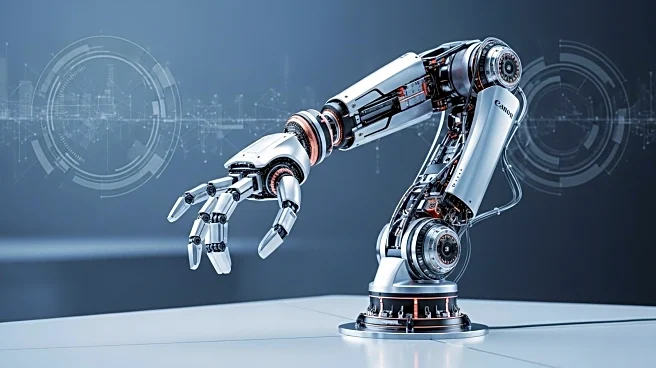What is the story about?
What's Happening?
Rodney Brooks, a renowned roboticist and founder of iRobot, has raised concerns about the current investment surge in humanoid robots. Despite significant venture capital flowing into companies like Figure, Brooks argues that humanoid robots lack the dexterity needed for practical applications, rendering them ineffective. This skepticism is echoed by other experts in the field, who predict that widespread adoption of humanoid robots is unlikely for several years, if not decades. Safety concerns are also highlighted, particularly regarding the interaction between humans and humanoid robots in shared spaces. The timeline for the development and deployment of humanoid robots remains uncertain, with companies like Tesla and Figure facing challenges in delivering fully autonomous robots.
Why It's Important?
The debate over humanoid robots is significant as it impacts the direction of investment in robotics and AI technologies. Venture capitalists and companies investing in humanoid robots may face financial risks if the technology does not advance as expected. The skepticism from experts suggests that the industry may need to recalibrate its expectations and focus on more achievable goals. Additionally, safety concerns could influence regulatory policies and public acceptance of humanoid robots, affecting their integration into everyday life. The outcome of this debate could shape the future of robotics and its role in various sectors, including manufacturing, healthcare, and domestic environments.
What's Next?
As the industry grapples with these challenges, companies may need to focus on improving the dexterity and safety of humanoid robots. This could involve developing new technologies or adapting existing ones to enhance robot capabilities. Investors and stakeholders will likely monitor advancements closely, adjusting their strategies based on technological progress and market demand. Regulatory bodies may also begin to establish guidelines to ensure the safe deployment of humanoid robots, particularly in public and private spaces. The ongoing dialogue among experts, investors, and companies will be crucial in determining the future trajectory of humanoid robotics.
Beyond the Headlines
The ethical implications of humanoid robots are an important consideration, particularly regarding privacy and security. As robots become more integrated into personal spaces, concerns about data collection and potential misuse of technology may arise. Additionally, the cultural acceptance of humanoid robots could vary across different societies, influencing their adoption and use. Long-term, the development of humanoid robots could lead to shifts in labor markets, with potential impacts on employment and economic structures.















